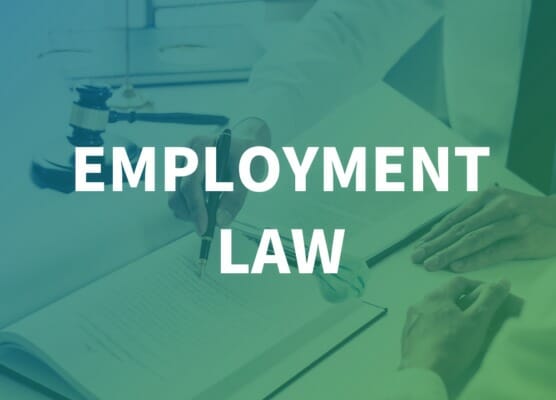Pandemic lawsuits: All the new ways you can get sued

It was sort of inevitable: Employees who are returning to work are suing their employers for a variety of perceived missteps. While the Department of Labor has been going after employers that have refused to provide paid leave to eligible employees, private pandemic lawsuits are just beginning.
Here are a few recent cases …
Too large for mandated paid leave? Doesn’t matter
Large employers fall outside the Families First Coronavirus Response Act’s requirement to provide employees paid sick/family leave. A company amended its paid leave policy to mirror the paid leave provisions in the Families First Act.
An employee who may have received a coronavirus diagnosis was advised to self-isolate. She didn’t, however, receive any paid sick leave. She was terminated for attendance-related reasons.
Now she is suing in federal court for wrongful termination. Her allegations: First, she was entitled to regular, unpaid FMLA, which she didn’t get. Second, because her employer amended its paid leave policy to mirror the provisions of the Families First Act, it can’t now claim it’s not covered under the law.
Seems like a lot of double negatives. And our hats are off to the attorneys who cooked up the second cause of action. But it’s not likely to withstand judicial scrutiny, because really, we have never heard of a company voluntarily covering itself under a federal law because its leave policy is the same as required by federal law.
Moral of the story: It’s a good reminder to stick to your paid leave policies, whatever they are.
The lawsuit is Robtoy v. The Kroger Co., d/b/a Peyton’s Northern Distribution Center, (ND IN, 2020).
OSHA gets first crack
Employees won’t come back to work if they don’t think it’s safe. So telling employees you’re following the guidelines from OSHA and the CDC will go a long way toward putting their anxieties to rest. This employer found out the hard way.
Employees at a meat processing plant sued in federal court, alleging their employer didn’t take the appropriate steps to keep them safe from the coronavirus. Responding to OSHA, the company made some changes to protect employees:
- It required them to undergo thermal screenings prior to entering the plant
- It instructed those who were symptomatic on what to do next
- It gave those who were symptomatic or who had underlying health conditions 14 days’ leave.
The company asked the trial court to dismiss the case, which it did, handing the case back to OSHA.
Court: Due to its expertise and experience with workplace regulation, OSHA is better positioned to make this determination than the court is. If OSHA fails to act quickly on this information, employees may receive emergency relief through OSHA’s statutory framework.
The lawsuit is Rural Community Workers Alliance v. Smithfield Foods, Inc. (WD MO, 2020).
Panicked public = more profits?
An employee at a meat processing plant died of respiratory failure caused by the coronavirus. His estate is suing in state court, alleging the company was negligent because it didn’t take adequate precautions. Instead, according to the complaint, it increased production to capitalize on increased demand.
The company is also being accused of fraudulent misrepresentation—it knew some employees had become sick, didn’t warn other employees, and misrepresented to employees that there was no risk of infection. A third count alleges wrongful death.
No damages were specified in the complaint. The employer has yet to file an answer to the complaint
The lawsuit is Estate of Benjamin v. JBS S.A., Philadelphia County Court of Common Pleas, 2020)
Common sense steps
So you’re not operating a meat processing plant, which is high-risk. That doesn’t mean employees won’t be skittish about coming back to work. Here are some steps you can take to reassure employees that it is safe to return to work:
- Rearrange office space and install physical barriers to put more distance between employees.
- Thoroughly clean and disinfect all workspaces and common areas.
- Follow state and local guidance encouraging employees to wear masks.
- Keep baskets of hand sanitizers around the office and encouraging employees to take a bottle.
- Model all the behavior you want employees to adopt.






